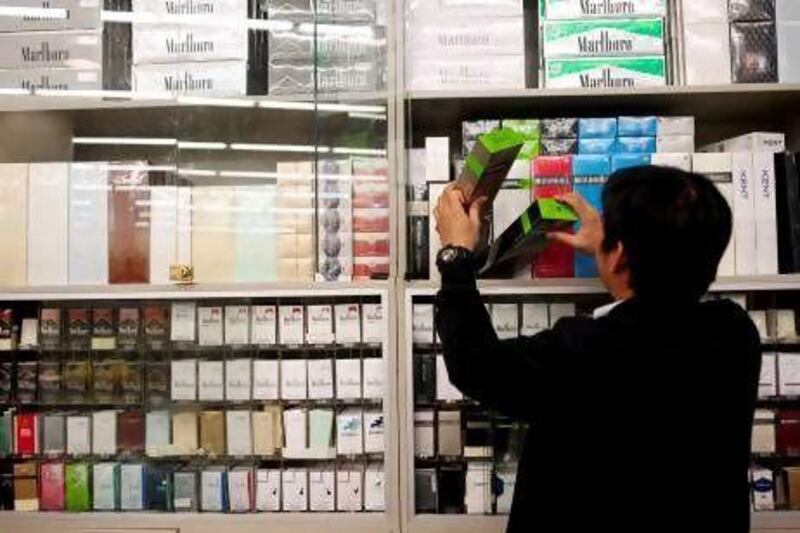DUBAI // Health authorities and smokers alike will be watching closely when finance ministers from all six states in the Gulf Cooperation Council convene tomorrow in Riyadh.
Among the many topics to be discussed is the possibility of increasing a region-wide tobacco tax in response to calls by the healthcare professionals in the GCC and the World Health Organization.
The GCC first increased its tariff on tobacco imports in 1995 by 100 per cent. In the same year, the council voted to reduce nicotine content in tobacco products and banned production of tobacco and its derivatives in any GCC member state.
In 2001, health ministers asked the council to increase the tariff by a further 150 per cent. The request was rejected, and the council agreed to focus on alternative measures to combat smoking.
John Habib, a UAE based legal consultant from the US who specialises and tax law, said the issue of nicotine was vital to the reduction of youth consumption but warned any tariff hike could lead to increase in smuggling of cigarettes.
"The issue of taxation has been carried out by a value percentage increase since 1995," he said. "An alternative would be a fixed price increase.
"However, this would cause an increase in illegal tobacco sales."
According to The European Commission's Taxation and Customs Union's report, the No 1 counterfeit product shipped from the UAE and stopped by their customs officials in 2010 was cigarettes, which accounted for 34 per cent of all items blocked. Tobacco products made up a further 8 per cent.
The report suggested that 56 per cent of all illegal cigarettes seized were made in the UAE.
In 2010, fake goods caught by European customs sent from the UAE made up only 0.66 per cent of all confiscated articles.
In 2009, UAE-originating products accounted for 15 per cent of all items seized.






